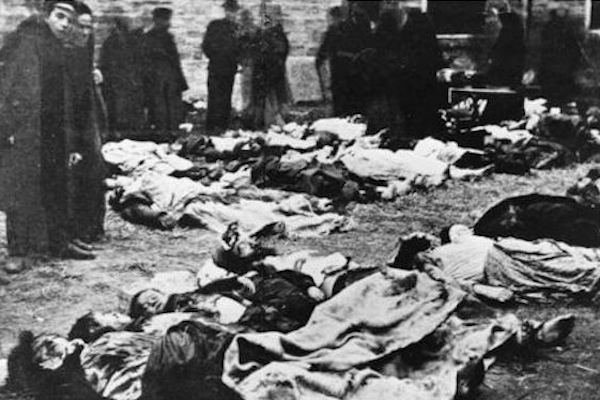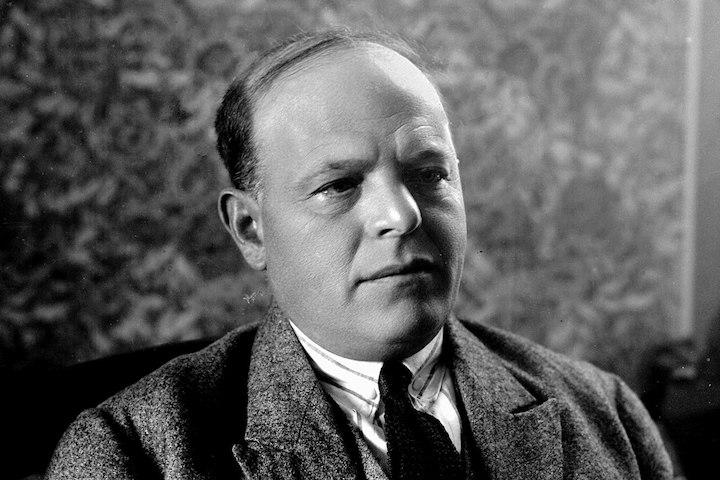The massacre at the Pittsburgh synagogue last weekend has led many to return to an age-old question: should Jews be arming themselves in the face of violent anti-Semitism?
By Roni Masel

It didn’t take long for President Donald Trump to offer his two cents on the cause for the shooting at Tree of Life Congregation last Saturday, which left 11 people dead. Not long after news of the massacre broke, Trump said the following:
[Gun laws have] little to do with it, […] If you take a look, if they had protection inside, the results would have been far better. This is a dispute that will always exist, I suspect, but if they had some kind of a protection inside the temple, maybe it could have been a very much different situation. They didn’t. [The gunman] was able to do things that unfortunately he shouldn’t have been able to do.
He is right about one thing: the debate surrounding Jewish armed self-defense is long and recurring.
All roads lead to the late 19th century, when the Hebrew Immigrant Aid Society, the Jewish organization supporting refugees and immigrants, and which reportedly drew the rage of the Pittsburgh shooter, was founded. Upon its establishment, HIAS’s goal was to help Jewish refugees fleeing Eastern Europe due to political and economic instability, and sometimes violent outbreaks that came to be known as “pogroms.” Emigration was certainly one way Jews chose to confront and survive these hardships. However, local community leaders in Eastern Europe had other solutions, one of the most prominent of which was armed self-defense.
In the eyes of community leaders, Jewish self-defense could remedy two plights at once: on the one hand, they believed it would prevent or minimize the threat of anti-Jewish violence. On the other hand, armed self-defense could play an important symbolic role: to rehabilitate the image of the despised diasporic Jew, the coward and effeminate nomad, so often portrayed as a slim, weak, urban, and degenerate creature. It doesn’t take much to detect the strong anti-Semitic overtones of these images, but movements on both ends of the Jewish political spectrum — Zionists and socialists alike —recognized these to be the “plights” of the Jew, which required fixing.
This sentiment culminated in the famous Hebrew poem “In the City of Slaughter,” written by Jewish poet H.N. Bialik after the horrific pogrom in Kishinev in 1903. The poem accuses the Jews of Kishinev of cowardly and passively accepting their fate and on the following morning going around from one community to the other, shnorring, collecting funds like beggars. In one of the cruelest and most unsettling moments in the poem, Jewish men are described peeping from their holes and hiding places, watching their wives being raped by pogromists, doing nothing and praying “A miracle, O Lord, — and spare my skin this day!” The most astonishing fact about this accusatory poem, which blames Jews for the violence committed against them, is that it was an absolute and utter lie.

Bialik was sent to Kishinev on behalf of the Jewish Historical Commission, which was established to provide information that would enable the launch of wide scale Jewish self-defense efforts. He was supposed to interview survivors and witnesses, collect documents, and subsequently publish a report. Instead, he suppressed the testimonies and evidence, and sat down in his father-in-law’s country house to write the poem. The two texts – the poem and the collection of testimonies and documents – are so profoundly contradictory that one finds it hard to believe they all came from the same person.
Indeed, from Bialik’s and others’ documents of the pogrom, it appears that there was serious and extensive armed self-defense in Kishinev, as was the case in another pogrom that took place a few months later in Gomel, where armed resistance left more pogromists dead than Jews.
That armed self-defense was ineffective in preventing pogroms is evident in historical research on the topic. In fact, it was even evident to some of the historical figures themselves, such as Simon Dubnow, one of the founders of the Jewish Historical Commission, who was skeptical about effectiveness of armed self-defense. While he hoped that by declaring that the Jews would fight back would cause the pogromists to retreat, he was also aware that it could trigger the opposite effect: that the threat of violence on behalf of the Jews might stir up even more aggression. Yet perhaps the strongest example of the ineffectiveness of Jewish armed self-defense is the State of Israel, which after 70 years is still unable to solve the problem of Jewish insecurity.
Traditionally, Jews employed other forms of protection like diplomacy and intercession. In the twentieth century, Jewish radicals in Eastern Europe sought solidarity with other ethnic minorities and joined forces in class struggle to advance their security. All over the colonized world, in the Middle East, North Africa, South Africa and elsewhere Jews participated in anti-colonial struggle, understanding that any form ethnic oppression is bound to hurt them too.
This isn’t to say that we should accept the verdict of anti-Semitism as a given fact, rather we should view it as a political phenomenon. Those on the Jewish right who try to argue that the Pittsburgh attack was merely one in a long chain of Jewish hatred in fact trivialize anti-Semitism, presenting it as eternal and unavoidable. As a political phenomenon, it must be read against its historical, material and political context, which today is marked by rising ethnic and racialized animosity, cruel neoliberal policies, and the renewed force of nationalism and imperialism.
Trump’s remarks on self-defense need to be taken in context as well. One might argue his comments simply reveal that he is an ardent Zionist, who like many Zionists in the 20th century blamed the Jews’ “passivity” for their own victimization, and who continues advocating the false doctrine that Jewish armed self-defense will protect them from anti-Semitic violence.
Some Jews on the conservative side might therefore see his remarks as tolerable. But in the context of the long debate on Jewish self-defense, Donald Trump, the president of the United States, is not Bialik. If anything, Trump is more like Tsar Nikolai II, ruler of the Russian Empire at the time of the Kishinev pogrom, often accused by world rulers of inciting inter-ethnic animosity in his own country in order to keep his reign.
When it comes to my security, I find it rather unwise to heed the advice of our new Nikolai II. Instead I prefer the long-standing Jewish diasporic tradition of diplomacy and negotiation, while showing solidarity with other minority groups in a joint political struggle.
Roni Masel is a doctoral candidate in the department of Hebrew and Judaic Studies at New York University. Her dissertation, “Diasporic Horrors, Diasporic Dreams,” focuses on narratives of anti-Jewish violence in modern Hebrew and Yiddish literature.
